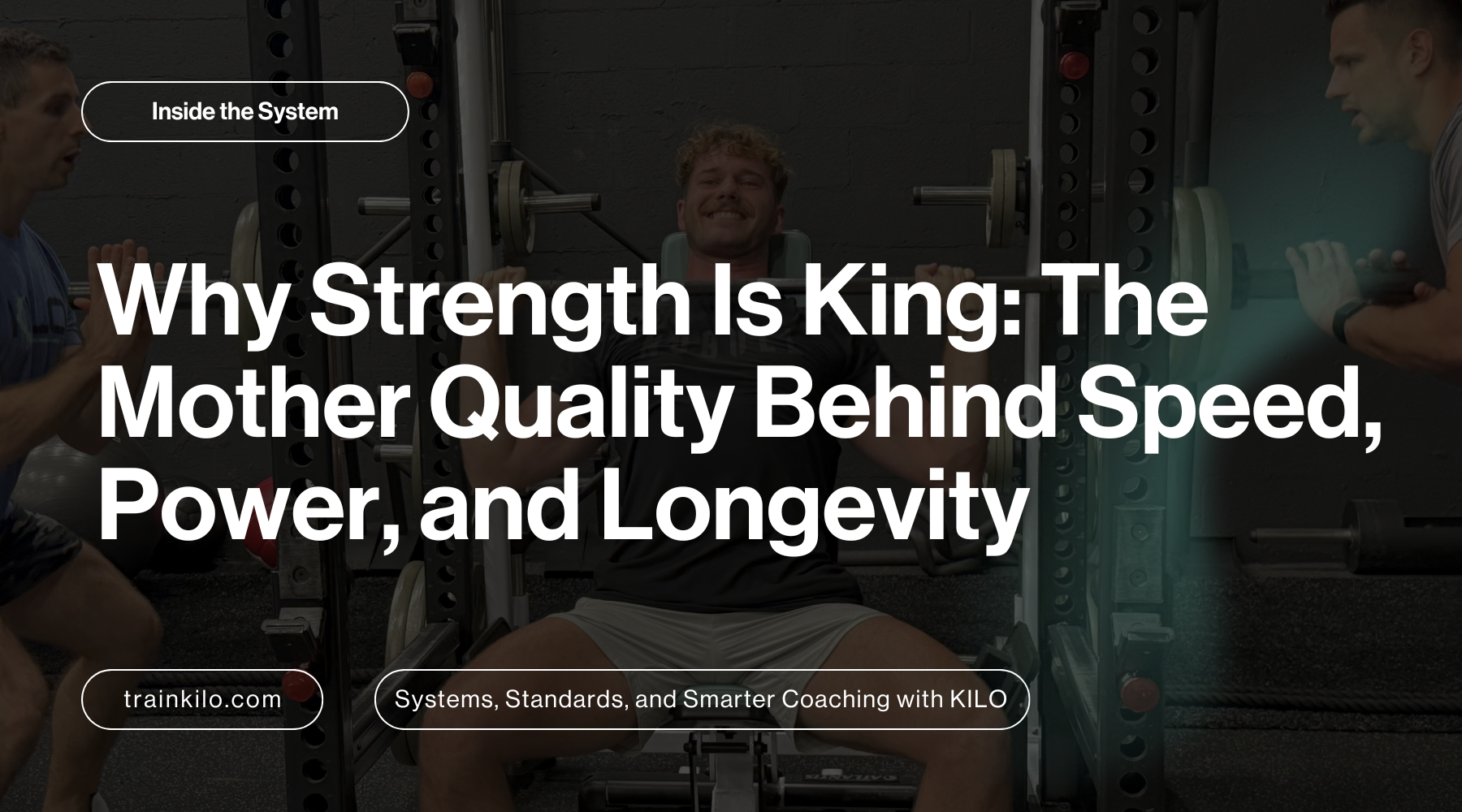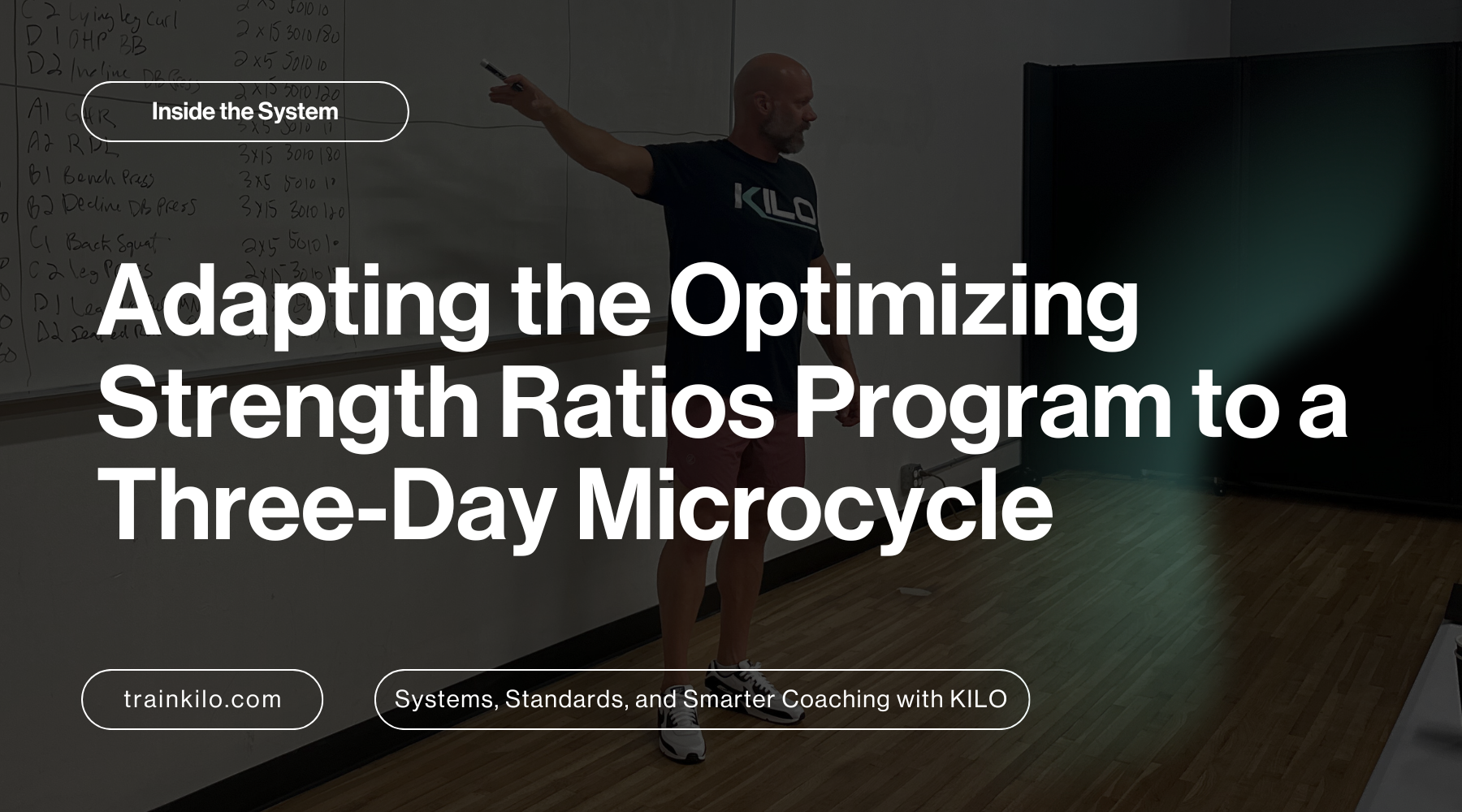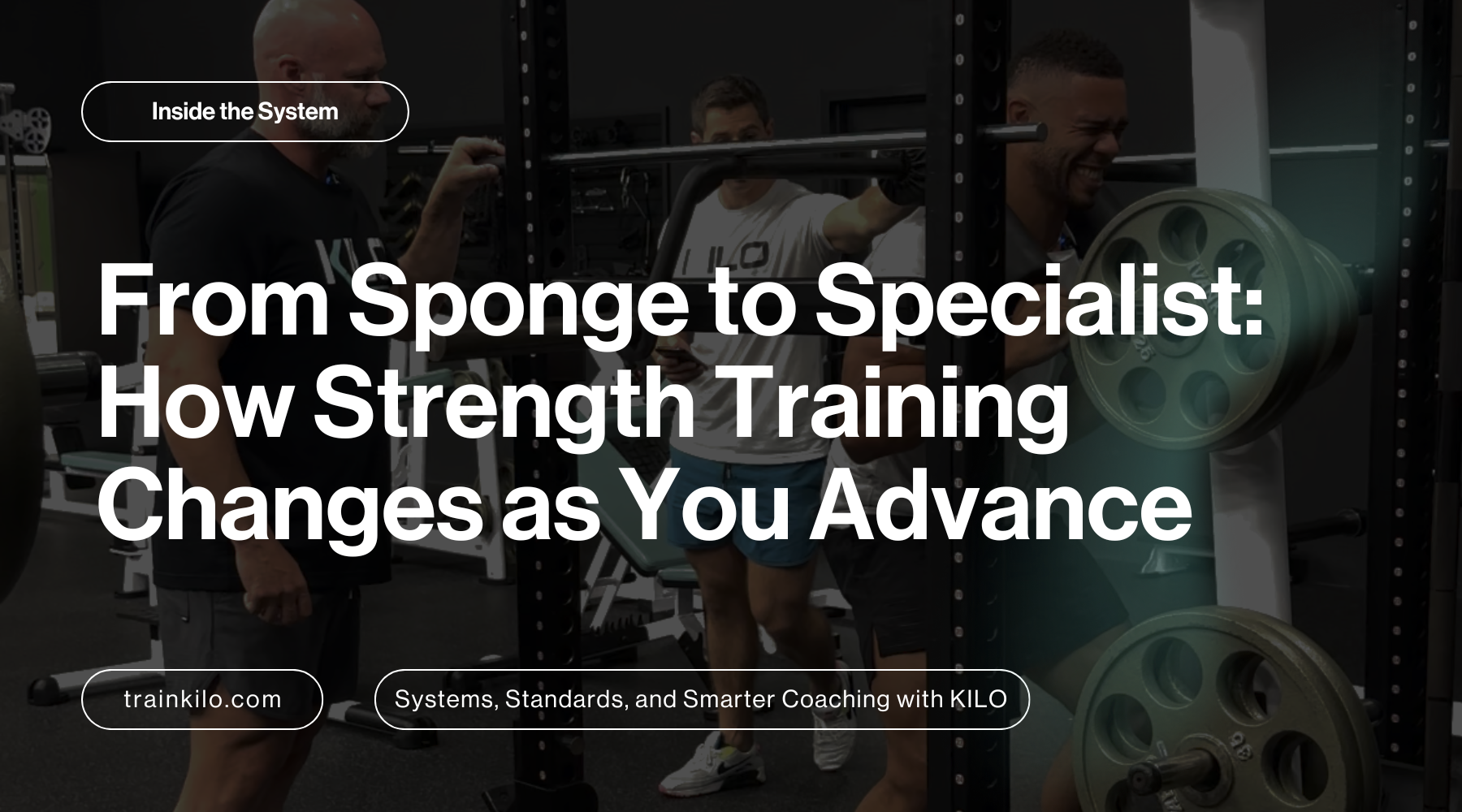Think deeper and coach better. Here, we explore the principles and perspectives that shape intelligent strength training, from how we think about the work to how we put it into practice. Each article helps you see the bigger picture, refine your approach, and connect the why behind the frameworks we use every day.
Why Strength Is King: The Mother Quality Behind Speed, Power, and Longevity
Strength is not just another training quality, it is the base that determines how well every other quality can develop. Motor unit recruitment, force, movement efficiency, and long-term resilience are all shaped by how much strength a trainee possesses. When that base is weak, speed, power, and technique stall no matter how advanced the drills become. This article explains why strength deserves priority in training, how it drives adaptation across systems, and where its influence begins to level off.
Read moreabout Why Strength Is King: The Mother Quality Behind Speed, Power, and Longevity
The Two Pathways to Stimulate Muscle Protein Synthesis
Muscle growth is not driven by effort alone. It is the result of a tightly regulated biological process that responds to how you train, how you eat, and how consistently those two variables work together. Many lifters understand pieces of muscle protein synthesis but fail to connect them into a system that actually supports long term growth and recovery. This article breaks down the key mechanisms behind MPS and shows how structured training and nutrition determine whether adaptation actually occurs.
Read moreabout The Two Pathways to Stimulate Muscle Protein Synthesis
Adapting the Optimizing Strength Ratios Program to a Three-Day Microcycle
The Optimizing Strength Ratios program was built around a precise four day structure for a reason. But real life does not always respect perfect training weeks. When schedules tighten or recovery demands shift, many coaches assume OSR cannot work on three days without sacrificing results. That assumption is wrong, but only if the adjustment is made correctly. This article breaks down the one structural change that preserves the integrity of OSR, and the common mistake that quietly undermines the system when coaches try to “simplify” it.
Read moreabout Adapting the Optimizing Strength Ratios Program to a Three-Day Microcycle
From Sponge to Specialist: How Strength Training Changes as You Advance
Training age determines everything in strength development. The body you have on day one does not respond the same way as the body you will have after four years under the bar.
Adaptation slows, fatigue increases, and training must become progressively more precise. This article outlines how strength training should evolve from the first year of lifting through the advanced stages. The goal is to help coaches map the right method to the right training age.
Read moreabout From Sponge to Specialist: How Strength Training Changes as You Advance
Fish Oil vs. SPMs: When and Why?
Inflammation drives adaptation, but only when it resolves. This article uncovers the real difference between fish oil and SPMs and how to use both to break through stalled recovery and keep progress moving.
When To Break The Rules: How To Bend The KILO System Without Breaking Your Results
At KILO, systems create structure, but great coaching requires knowing when to bend the rules with purpose.
This article explains when it is appropriate to deviate from the KILO model, how to adjust macrocycles and mesocycles, when to modify PRIMEIGHT lifts and how to keep progression intact while adapting the program to the lifter in front of you.
Read moreabout When To Break The Rules: How To Bend The KILO System Without Breaking Your Results






